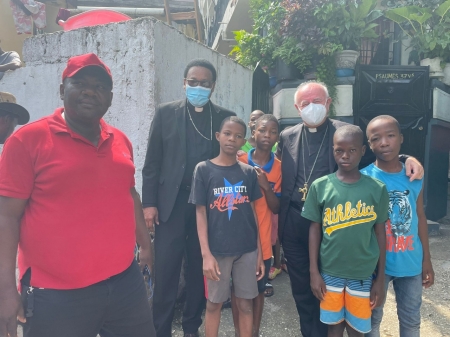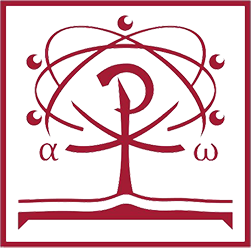Pandemic and Challenges for Education

Vatican City, December 22, 2021.- The impact of the Covid-19 pandemic on the lives of children and adolescents requires a focus on what has been called a “parallel pandemic.” Children and young people, in a situation that even adults are finding unprecedented, all-encompassing and traumatic are showing a mature ability to be sensitized to and involved in the understanding and interpretation of the pandemic and its effects.
Archbishop Vincenzo Paglia:
We are here as the Pontifical Academy and Dicastery, as part of the Vatican Covid-19 Commission, to present two documents.
The first document, drafted by the Pontifical Academy in collaboration with the Dicastery for Promoting Integral Human Development and the Vatican Covid-19 Commission, is entitled: "The Pandemic and the Challenge of Education". The second document, drafted by the Vatican Covid-19 Commission, is entitled: "Children and Covid-19: the most vulnerable victims of the pandemic".
We have experienced and are experiencing the pandemic from a health perspective. But there is a parallel pandemic, which affects generations at the stage when they are developing the energies aimed at feeding the imagination of the future; that pandemic is destined to have a profound effect on the psychology of children, especially adolescents. The disorientation of our boys and girls cannot but call the attention of adults. The partial or total closure of schools and of many activities that normally involve the younger generations has had very serious consequences. Research and studies are emerging with increasing clarity that show a worrying situation. In the North of the world, the interruption of school and social life decreases the level of preparedness, increases the onset of psychological problems due to forced solitude and undermines the desire to dream, to live. In various parts of the planet, the pandemic poses a serious threat to school dropouts.
On the other hand, we cannot fail to note how these difficult years can be an opportunity for growth. Since vaccination was authorized for adolescents, the vast majority of young people have adhered to it with full awareness and conviction, showing a great ability to understand the current situation and the value of science and medicine, as well as all those preventive measures that we know so well. Only those few who do not intend to respect the rules make the news. But we must also acknowledge the positive role of a generation that, by vaccinating en masse, shows a deep desire to collaborate and support society in a time of crisis.
The Pontifical Academy for Life emphasizes four aspects.
Firstly: open schools safely, and keep them open, because education and socialization are priorities. One of the actions that we consider a priority for governments is to work to ensure that school buildings are equipped to guarantee the greatest possible security and that distance learning is only the last resort.
Secondly: it is unthinkable to face the next months without adequate (social, cultural, economic) support for families, who will still be called upon to bear quite a few consequences of the pandemic emergency.
Thirdly: let us educate to universal brotherhood, taking seriously Pope Francis’ encyclical. With the pandemic, the whole world has entered every home: that of the wealthier and older countries as well as that of the younger but still developing ones.
Fourthly: let us resume activities in the Christian community with new momentum. And let us renew a close bond between families, associations, parishes and movements, so that this difficult time may be seized as an opportunity to grow and become better, as Pope Francis has often reminded us.



